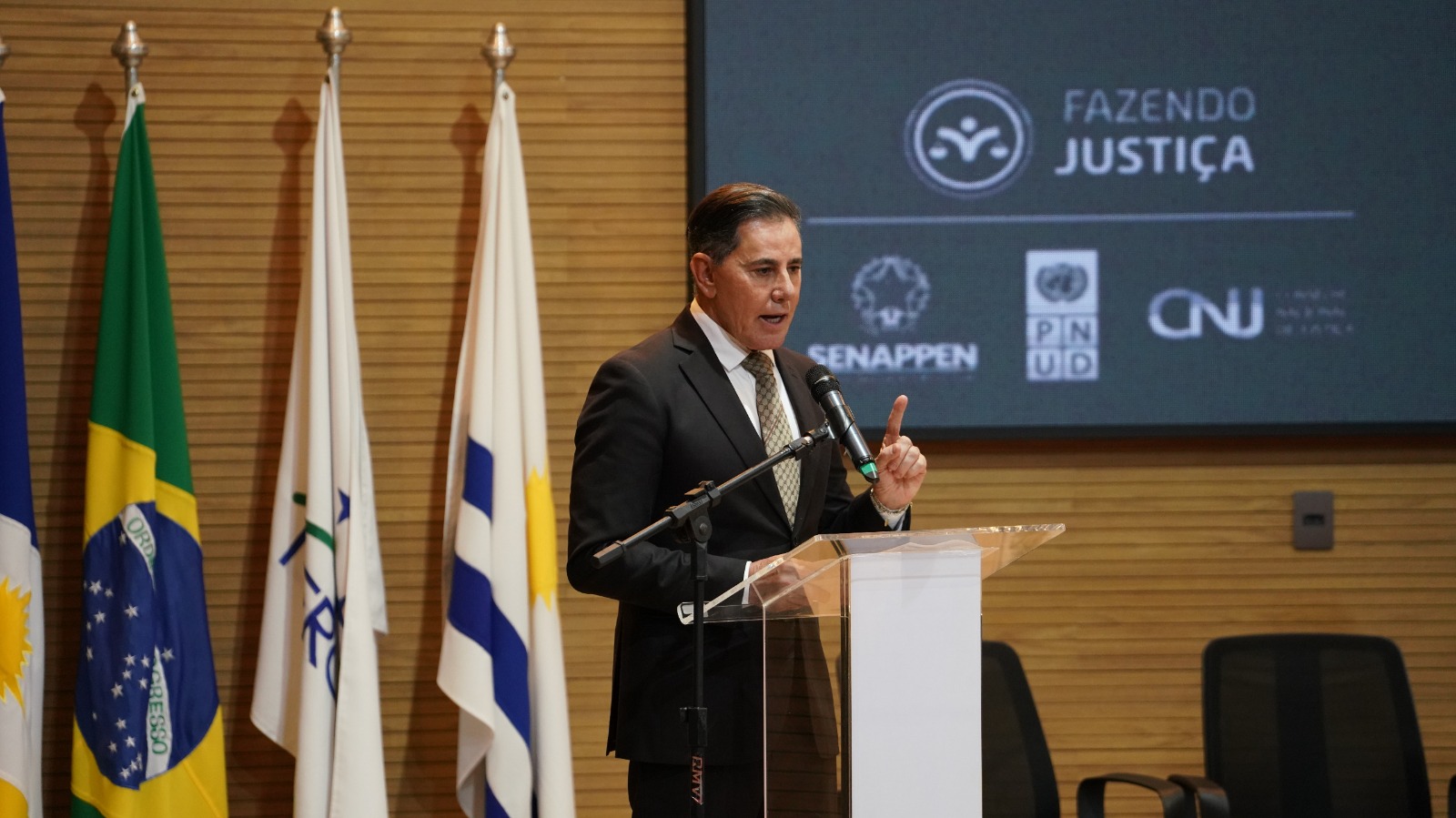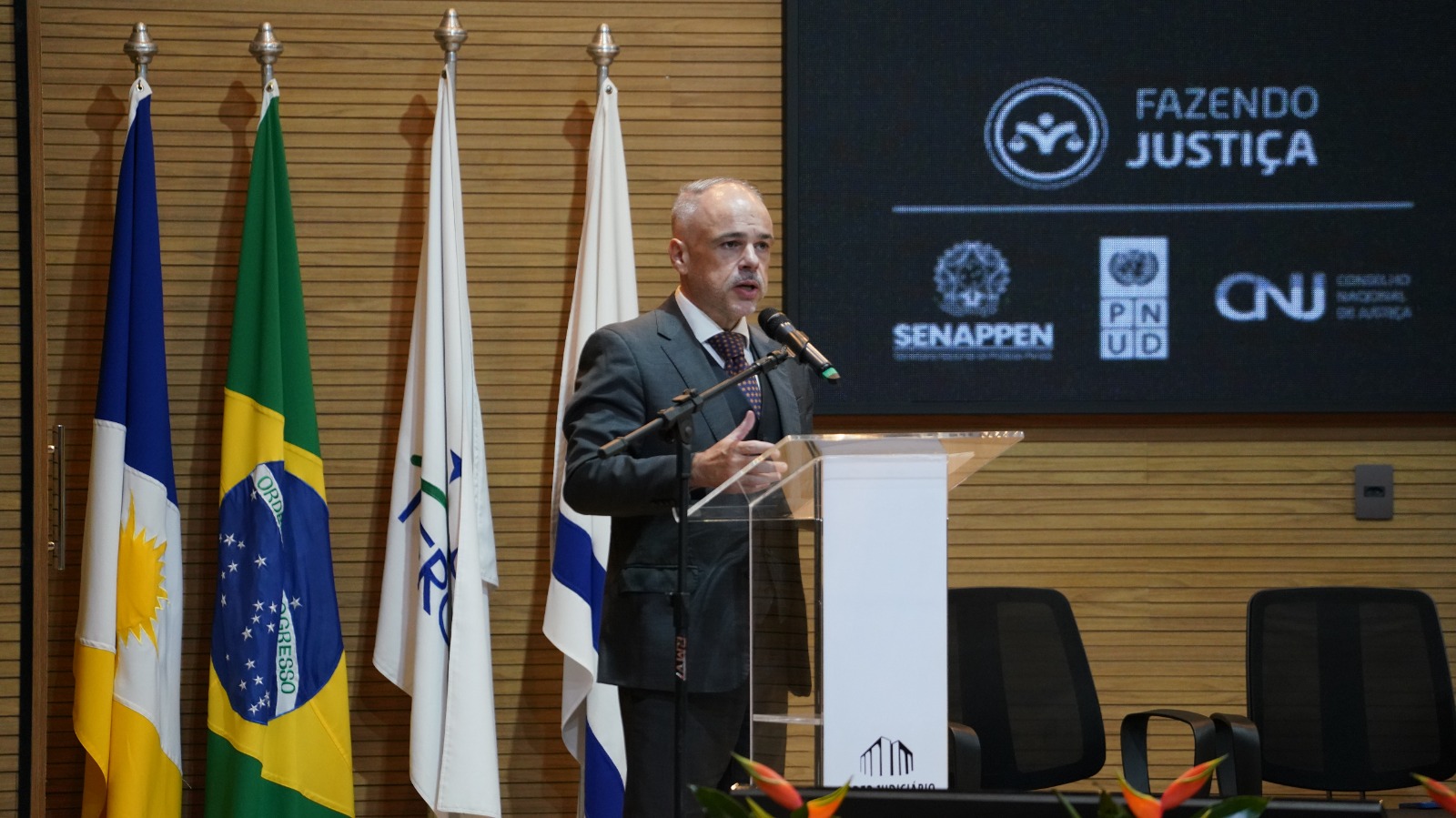
Joining forces to transform the reality of the Brazilian prison system was the theme of the "Fair Sentence - National Plan for Confronting the Unconstitutional State of Affairs in Brazilian Prisons - ADPF 347" lecture, which opened the 93rd National Meeting of Chiefs of Justice (Encoge) and the 5th National Land Forum, at the Court of Justice of the State of Tocantins (TJTO) in the city of Palmas on Wednesday (April 24th).
The lecture was given by the National Justice Councillor, Justice José Edivaldo Rocha Rotondano, and the Assistant Judge to the President of the National Justice Council and coordinator of the Department for Monitoring and Inspection of the Prison System and the System for the Execution of Socio-Educational Measures (DMF), Justice Luís Geraldo Sant'ana Lanfredi.
At the start of his speech, Mr. Rotondano said that there is no longer any room in Brazil for an unconstitutional state of affairs. "We have categorically and systematically failed as a society so far. Reproducing and sometimes applauding barbarism in the prison system is a civilizational step backwards. All the limits, of the constitution, of the law, of humanity, have been stretched to the point of no return."
Justice Rotondano stressed that all the problems in the prisons of the country, such as overcrowding, lack of control over entry and exit, among others, violate the fundamental rights of people deprived of their liberty and that changing the scenario is only possible with the participation of society as a whole.

"It is essential to implement dialogues that involve the Judiciary, the Executive, civil society, people deprived of their liberty and their families, penal service professionals, specialists and all those who care about justice and human dignity, restoring security for all of us, around the expectations we aspire to as a society."
To make the difference
During the presentation of the work to implement the National Plan to Overcome the Unconstitutional State of Affairs in the Brazilian Prison System (Fair Sentence), Luís Geraldo Lanfredi, Assistant Judge to the President of the CNJ, said that the Federal Supreme Court (STF), in recognizing the scale of the problem, "gives back to the actors who intervene in it and says: discuss, lack dialogue, build, redo."
As coordinator of the Department for Monitoring and Inspection of the Prison System and the System for the Execution of Socio-Educational Measures (DMF), Lanfredi also pointed out that the Penal System is directly linked to a desire of society, which is public safety. "An issue that is often poorly dealt with and poorly exploited politically". The Plan, according to the Assistant Judge, is an opportunity to propose public policies that make a difference.
"More of a theoretical piece, the plan has to be pragmatic, that inserts itself into a reality, transforms lives and makes a difference in society," since, according to the Justice, following the current reality of the Brazilian prison system "has shown the potential to destroy families, homes and society with the organized crime that is there. (...) The sense of bringing an achievable matrix, of a plan to refund this system that has long ceased to be functional, to work and to show its effectiveness."
Fair Sentence
The elaboration of a National Plan for Confronting the Unconstitutional State of Affairs in Brazilian Prisons – Fair Sentence - was one of the determinations of the Federal Supreme Court (STF) when it concluded its judgment on the Argument for Non-Compliance with the Fundamental Precept 347 (ADPF 347) in October of 2023.
Responsibility for the plan lies with the National Council of Justice (CNJ), through the Department for Monitoring and Inspection of the Prison System and the System for the Execution of Socio-Educational Measures, and the Ministry of Justice and Public Security, through the National Secretariat for Penal Policies, and it must be submitted for approval by the Federal Supreme Court (STF) by next July.
So far, several institutional meetings have been held and all the suggestions and subsidies will be submitted to popular participation through a public hearing on April 29th and 30th and a virtual public consultation.




